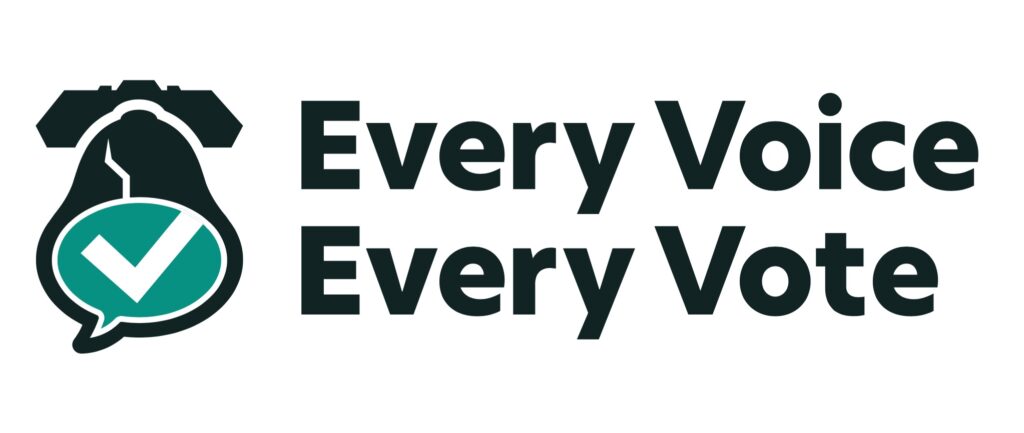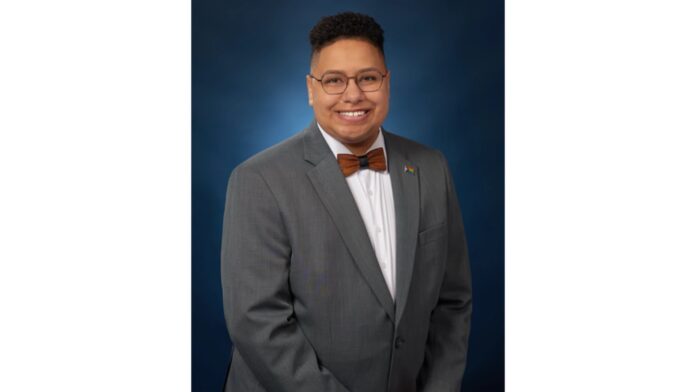Ashleigh Strange was named executive director of the Governor’s Advisory Commission on LGBTQ Affairs in March, filling a vacancy left by Henry Sias who resigned in November for health reasons.
The commission, which was resurrected by Gov. Josh Shapiro in 2023, is tasked with gathering information about the needs and experiences of LGBTQ+ Pennsylvanians, assessing programs that impact the community, and providing recommendations to the governor about how to best support LGBTQ+ people. The commission is also responsible for communicating with the public about the programs and services that might benefit the LGBTQ+ community in an effort to increase awareness and access.
“It’s great to have a governor that is so receptive and wants to absolutely focus on our community,” Strange said.
Strange came to the east coast looking for an adventure. They’d applied to jobs all over the United States, and the first reply was from an Amazon location in Breinigsville, Pennsylvania. Within a week, they sold their car, found some roommates on Craigslist, and hopped on a plane.
They were raised in Fairbanks, Alaska where they were homeschooled and raised in a fundamentalist church.
“That has really given me not only insight to who I am, but it’s also given me insight to who other people are and that everyone has a larger backstory,” they said about the way their upbringing impacts their approach to getting to know other people.
They underlined that their own diverse experiences help them keep biases in check, especially when working with people who might not be as familiar with LGBTQ+ people or might have negative feelings about the queer community.

“I want to educate general Pennsylvanians,” they said. “And let them know that we are also general Pennsylvanians. We just want to be here thriving and living our lives.”
Strange also makes a point to meet with people who are different from one another and learn about the vast and varying experiences within the queer community. They hope to avoid a sole focus on the groups which get the most attention and instead aim to ensure that all members of the community — including those who are more often represented by the ‘plus’ in LGBTQ+ — feel like they have an advocate.
“I do a lot of listening,” they noted about their job, which they described as a conduit between the governor and the LGBTQ+ community.
“I take the stories, I take the anecdotes — the little pieces of themselves that people give me, and it’s my job to translate that to the governor’s policy team to find out where we can make these changes,” they explained.
The biggest issues they encounter aren’t necessarily bigots though. It’s apathy — a lack of momentum that led to community projects falling apart, they explained. The commission is trying to be more proactive and engage in ways that feel more sustainable.
“Folks will come to me with issues that they don’t know what to do with,” they said. Strange noted that they may or may not have answers or solutions but can always bring these issues to their broader team — a network of 26 volunteers who lead subcommittees dedicated to more specific populations and goals (such as aging, health, education, and many other topics). Together, they can start developing next steps.
One example of this kind of work is the progress made on efforts to ban conversion therapy, which was made before Strange was hired. Community members brought the need to the attention of the commission, which partnered with state agencies and nonprofit organizations to enact change.
Strange is developing relationships with the leaders of the five other commissions which represent marginalized communities to understand how to best support each other’s goals. They’re currently collaborating with the Commission on Women to develop language for the group that better suits all people who are impacted by their advocacy work. A big part of that collaboration is sharing information.
For instance, Strange noted that First Lady Lori Shapiro, who is closely involved with the efforts, is concerned with ensuring menstrual products are available at no cost in schools. Strange has been promoting the use of more inclusive language about the varying populations who need access to these products, which will reduce additional barriers for some students.
Other states that have LGBTQ+ commissions — including Washington, Michigan, Massachusetts and Maryland — are becoming a model for Strange to learn how to leverage the commission to benefit the LGBTQ+ community and how to reach their constituencies.
One of their strongest goals for their tenure is to develop new standards around communication and transparency. Strange started a Substack newsletter and is beefing up the commission’s social media presence to keep in touch with the community. They want people to not only know that the commission exists but also know what the group is up to.
Strange said they also appreciate “standing in front of people, shaking their hands, and learning their stories.”
“It was through a lot of those conversations with the community and meeting with people that were like me, essentially. That was really helpful in giving me the courage to come out and learn more about myself,” said Strange — who is trans, nonbinary and queer — about discovering language for their gender identity more recently.
This month, Pennsylvanians might see Strange in more rural areas as they visit local Pride events. Strange also wants to visit those whose communities are hosting their first ever Pride festivities.
Fans of public radio can also find Strange on Q:LV, a program that airs every month with a fifth Sunday on WDIY (Lehigh Valley’s NPR affiliate).
“It’s really an opportunity to reach folks in a new way,” said Strange about the show, which will include discussions about topics and issues that are more specific to the Lehigh Valley, where Strange resides. “I’m really hoping to use this time to just have a conversation with someone in the community that has a full stake in it.”

